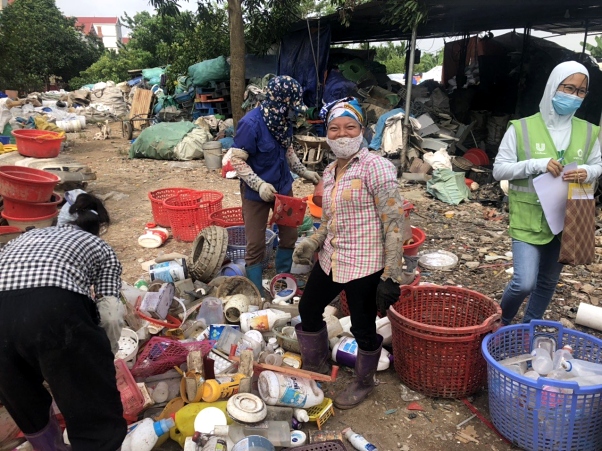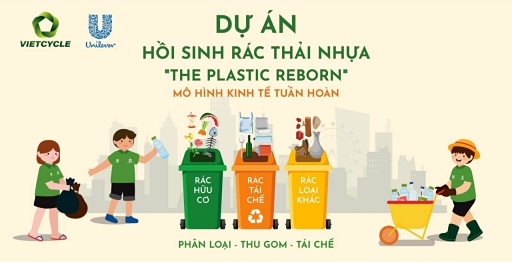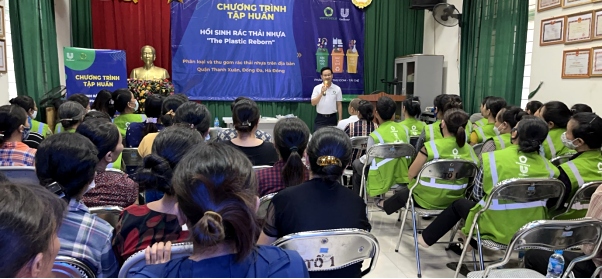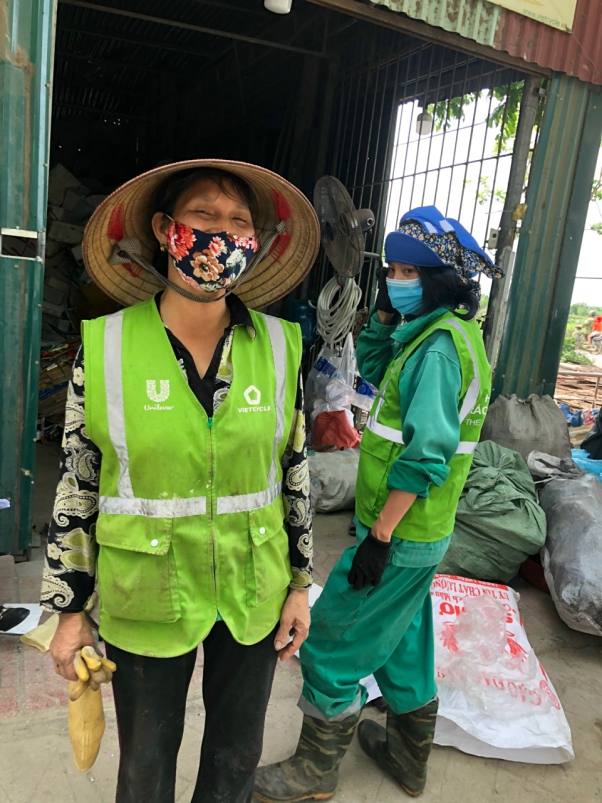Informal female labourers - a force for plastic waste management in Vietnam
VOV.VN - While waste collection is an unsteady job with limited hygienic conditions, informal labourers – mostly women – play a crucial role in the plastic waste segregation at source and collection in Vietnam.
Plastic waste pollution has developed into a global problem, impacting landscapes and habitats, whilst also threatening the local ecosystem.
According to the Food & Agriculture Organisation of the UN (FAO) in Vietnam, Vietnam is among the top 10 countries responsible for roughly 13 million tonnes of plastic waste discharged into the ocean each year. Therefore, plastic waste segregation at source and collection helps to bring plastics back to serve the economy, turn plastic waste into a recycled resource and give it a second life.
It is estimated that over 30% of waste in Vietnam is collected through informal channels, with the majority of work being done by women.

Encouraging female labourers to participate in waste collection and segregation efforts therefore contributes to empowering women through providing them opportunities in which to develop and create positive added values for wider society and the community as a whole so as to improve women’s social and family status. This serves to drive the gender equity commitment which is among Unilever’s essential pledges in the sustainable development strategy that the company has pursued.
Unilever Vietnam, along with the partner VietCycle, has pioneered the “The Plastic Reborn” programme which aims to conduct plastic waste segregation at source whilst making collections to promote the Circular Economy model. This is done whilst simultaneously improving working conditions, occupational safety, health, and the life of informal female workers in the value chain.

This initiative has successfully built a collection system in Hanoi through recruiting and building on-street collection agents, large collection stations, as well as a network of more than 1,200 informal waste collectors. The scheme has so far segregated and collected over 12,000 tonnes of plastic waste.
Furthermore, the programme has implemented a wide range of training and communication activities for collection associations, collection stations, and informal waste collectors, providing them with information about hygienic condition, labour safety, and protective equipment for plastic waste collection. This has helped to improve the health and living condition of collectors.

Ms. Nguyen Thi Van, an informal waste collector from Hanoi, shared details about her participation in the programme, “In the past, I only sorted and collected waste by habit. But since joining the program, I have been guided on how to properly classify each type of waste to help better waste treatment later. I also have the chance to meet and share my feelings with other colleagues, in addition to being provided with hygiene products from training programs, and understanding the role of the job that I am doing, so all affliction seems to disappear.”

Besides women’s empowerment, the scheme “The Plastic Reborn” also helps Unilever Vietnam to strongly promote its commitment to plastic management by 2025. That includes collecting and processing more plastic waste than the packaging amount sold in the market, thereby underpinning efforts to create a cycle for plastic waste. Additionally, the company also pledges that all packaging items will be recyclable and will strive to reduce the amount of virgin plastic used in packaging production by half through absolute reduction and the increase in use of post-consumer recycled plastic.
“Along our sustainable development journey, Unilever pays special attention to the goal of building a waste-free world through strong commitments in plastic waste management,” says a Unilever Vietnam representative.
Previously, Unilever, in collaboration with the Ministry of Natural Resources and Environment, has been known for being the catalyst to build and lead the Public-Private Collaboration to drive the Circular Economy in Plastic Waste Management in Vietnam. It is also fully committed to promoting four focuses, including plastic waste segregation at source and collection, communication - education to raise public awareness, application of science - innovation in plastic waste management, and policy advocacy.
